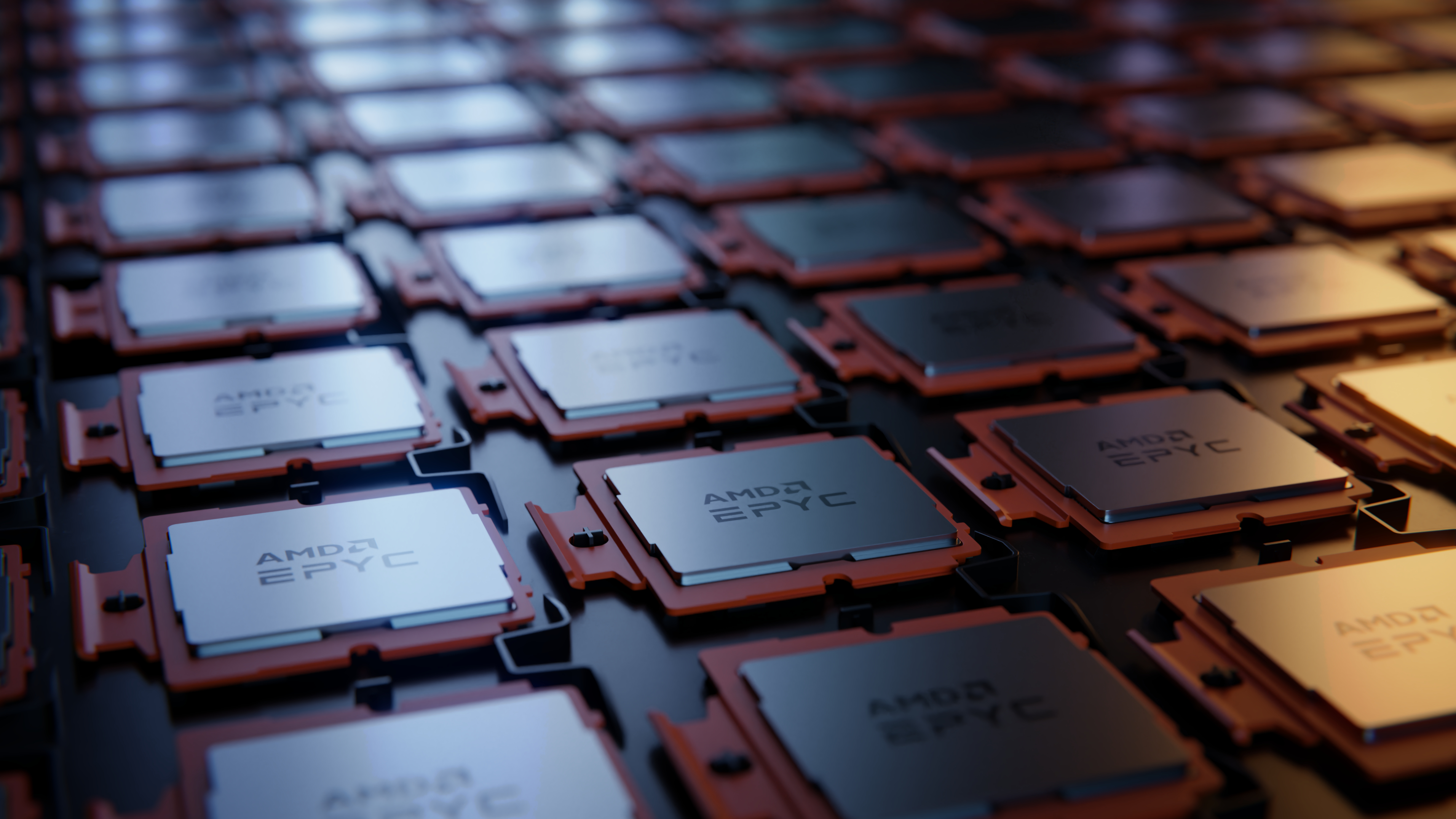Chinese firms getting rid of 64-core AMD CPUs in EPYC $1,000 bonfire sale
Hyperscalers from China are definitely replacing their old gear - but with what?

Sign up for breaking news, reviews, opinion, top tech deals, and more.
You are now subscribed
Your newsletter sign-up was successful
64-core AMD EPYC processors have fallen to their lowest average selling price yet since we started tracking second hand units on sale on Aliexpress and eBay.
We managed to source some of these extraordinary second-hand CPUs for just above $1,000, all coming from mainland China; although the sticker price on these is $1058 with free delivery, the sellers do accept offers which suggests that a $999 final price could be within reach.
Note though that unlike the units we came across back in March 2023, the models in today’s round up are 2nd generation EPYC processors rather than third generation, which explains the price difference. The 7702P, a single-socket part, is the most affordable 64-core CPU right now. It can run at up to 3.35GHz with a massive 256MB L3 cache and a reasonable 200W TDP.
None of the models we came across were vendor-locked, which means you could start your very own web hosting company on a budget should you fancy assembling a reasonably fast server with plenty of RAM and cores to play with.
There has also been a notable drop in the average selling price of second hand third-generation, Milan-based, EPYC processors. You can now pick one of them - the single-socket 7713P - for less than $1,600, about 15% cheaper than when we surveyed the market three months ago when Genoa-based, fourth generation AMD EPYC processors had just started appearing on the wider market.
In comparison, the selling price of the AMD ThreadRipper 3995WX, the workstation equivalent of the EPYC 7713P, sells for more than $7,000 brand new, which is actually a significant hike from its suggested retail price of $5,500 when it launched two years ago.
The building blocks of a fabulous workstation
If you’re happy to use second hand processors to build a computer, then a used EPYC CPU is a no brainer, especially given discounts of up to 80% compared to a brand new unit, especially if you want a workstation for AI training, rendering, video editing and anything that requires a lot of compute power and plenty of powerful cores.
Sign up to the TechRadar Pro newsletter to get all the top news, opinion, features and guidance your business needs to succeed!
Pair it with decent amount of memory, an appropriate gaming (or professional) graphics card and one or more SSD and you’ve got a fantastic workstation that’s able to slash through almost any workloads at a fraction of the cost of anything currently on the market.
Back in March 2023, we posited that the appearance of 3rd generation EPYC processors on popular marketplaces was due to Chinese hyperscalers getting large quantities of 4th generation processors and the subsequent decommissioning of existing hardware. That is likely fueled by the race to domestic AI domination.
Analyst firm Trendforce yesterday highlights this in a report saying that "the explosive growth in generative AI applications like chatbots has spurred significant expansion in AI server development in 2023. Major CSPs including Microsoft, Google, AWS, as well as Chinese enterprises like Baidu and ByteDance, have invested heavily in high-end AI servers to continuously train and optimize their AI models."
EPYC processors, by and large, are still very, very capable parts especially for number crunching, data intensive tasks. The 7773X is ranked third in PassMark’s popular CPU mark benchmark, only behind the current world’s fastest CPU, the EPYC 9654, and the Ryzen ThreadRipperPro 5995WX.

Désiré has been musing and writing about technology during a career spanning four decades. He dabbled in website builders and web hosting when DHTML and frames were in vogue and started narrating about the impact of technology on society just before the start of the Y2K hysteria at the turn of the last millennium.